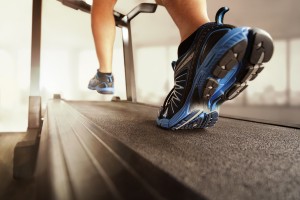 Travelling abroad can take its toll on the body, and provide many opportunities for exposure to diverse bacteria and environments. As a result, it may be beneficial to prepare your body for the potential shock and harm that it could come into contact with. Some of these areas are important to focus on when planning for a trip. In addition, as always not everything recommended below is beneficial for everyone, so please contact your naturopathic doctor or health care provider to determine a plan that is best for you.
Travelling abroad can take its toll on the body, and provide many opportunities for exposure to diverse bacteria and environments. As a result, it may be beneficial to prepare your body for the potential shock and harm that it could come into contact with. Some of these areas are important to focus on when planning for a trip. In addition, as always not everything recommended below is beneficial for everyone, so please contact your naturopathic doctor or health care provider to determine a plan that is best for you.
Prime Your Digestive System
With travelling to different countries, many are exposed to a variety of different foods and as I mentioned bacteria. If your digestive system is not prepared, this can leave you experiencing such symptoms as diarrhea or constipation. These symptoms could even be compounded by even worse scenarios including parasitic infections or bacterial infections. In order to prevent these symptoms and prepare for exposure to different items, several steps can be taken to boost your digestive immune system. Probiotics taken for about one month leading up to a trip can help with prevention of traveller’s diarrhea. In addition, such hydrotherapy techniques such as castor oil packs can help prime the digestive system by helping to produce more white blood cells to prevent infection.
Boost Your Immune System
By boosting your immune system prior to a trip, one can potentially prevent infections as well as fight infections more efficiently. Some ways that one can boost their immune system prior to a trip include taking a multi-vitamin, vitamin C, juicing, or even fasting prior to the trip. In addition, the probiotic that was mentioned above may also help to boost one’s immune system.
Ground Yourself
When flying, it can cause a negative impact on our body leaving us feeling a bit unbalanced. By grounding oneself following a flight, it may help individuals to better adjust and adapt to being back on the ground. There are many different ways that one can ground themselves, some of which may be easier to do than others. Grounding techniques can include laying on the ground as soon as possible for about 20 minutes, meditation, or washing your hands in running water. The last technique may seem unusual, but there is research suggesting that because water is connected to the earth, it can be a great way to ground yourself.
Reset Your Internal Clock
Travelling between time zones can take its toll and cause jet lag. For some, the adjustment can take as long as the trip itself, by which point you may have to endure the jetlag again. Ways to combat this include grounding techniques mentioned above, as well as melatonin. Melatonin is a natural component found in the body that regulates our sleep and wake cycles. In other words, melatonin can aid with sleep and thus help with the adjustment to new sleep times.
Preparing at Work and Home Before
Stress can result from the work that piles up at home and work while one is away. By making lists for when you get back, it can help regain focus on what needs to be accomplished after arriving home from a trip. Technology has also made it easier to prepare in such ways as automatic billing. This may cause more distress for some, and so it is important to prepare in a way that will most benefit you and decrease your stress burden.
Have you benefitted from reading this blog? Know someone that would benefit as well? Share, Like, Comment, or Tweet this article, and let me know what you think.
Some of the information provided above may not be appropriate for everyone, please consult with your doctor before trying any of the above. If you are interested in Naturopathic Medicine and wanting a different approach to your health care needs, contact Dr. Elisha Cook ND by calling 519-537-7058 and book your appointment today!


